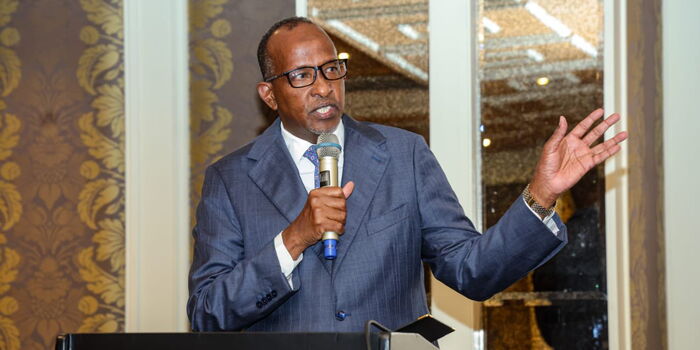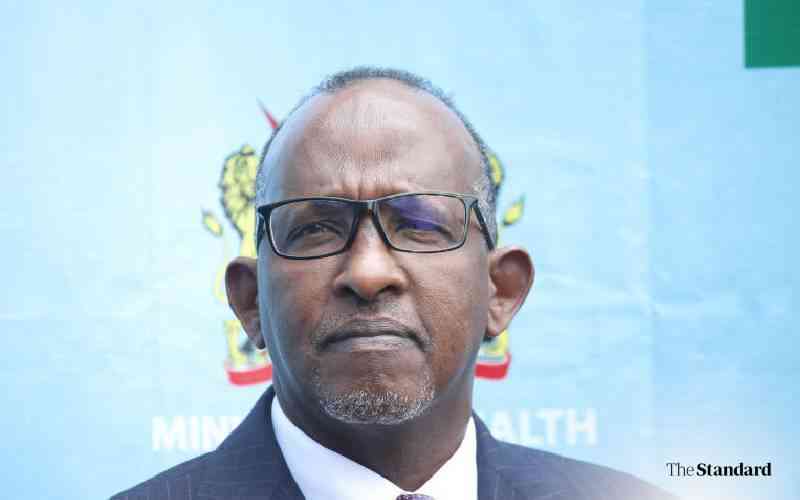CS Duale Clarifies SHIF Contribution Policy

Kenya's Social Health Insurance Fund (SHIF), a mandatory health insurance scheme designed to provide universal health coverage (UHC) and replace the National Health Insurance Fund (NHIF), has been at the center of a legal storm regarding its contribution mechanism. The government, through Health Cabinet Secretary Aden Duale, has maintained that the 2.75% statutory contribution to SHIF remains legally binding, despite a High Court ruling that raised significant concerns about its implementation.
On June 13, 2025, High Court Justice Chacha Mwita delivered a ruling in the case of Clarence Eboso v. Ministry of Health & Social Health Authority (SHA), declaring certain SHIF deductions unlawful. The core of Justice Mwita's ruling was that deducting SHIF contributions from an employee's gross income, after income tax has already been applied, constitutes a violation of tax law. He emphasized that gross income should only be subjected to income tax, and any subsequent deductions from it would amount to double taxation, which is prohibited under the Income Tax Act based on principles of fairness and equity. Justice Mwita specifically noted that the Social Health Insurance Act (SHIA) and its regulations do not permit individuals to contribute 2.75% of their gross income to SHIF if that income has already been subjected to income tax, as this would result in a second, unlawful charge.
Despite this ruling, Health CS Aden Duale clarified on June 23, 2025, that the court's decision did not compel an immediate suspension of the deductions. He stated that the matter is under active review by the Court of Appeal. Duale reiterated that the 2.75% contribution to the Social Health Authority (SHA) is legally in effect and is recognized as a tax-deductible expense under the Tax Laws (Amendment) Act, 2024. The Ministry of Health asserts that SHA continues to operate within the legal framework established by the Universal Health Coverage laws, which include the Social Health Insurance Act, the Digital Health Act, and the Primary Health Care Act, all aimed at ensuring financial protection and access to quality health services for all Kenyans.
Further legal challenges have emerged, including a petition filed by four doctors contesting the legality and fairness of the SHIF contribution system. They argued that mandatory registration and the 2.75% deduction violated multiple constitutional guidelines, specifically concerning privacy, equality, and property rights, alleging that post-tax income is protected property. However, Justice Mwita declined to hear this particular case on June 23, citing that the issues raised were “sub judice,” meaning they were already being addressed in other ongoing legal proceedings, including one filed by Busia Senator Okiyah Omtatah challenging the constitutionality of the Social Health Insurance Act itself. The judge acknowledged that some matters might not be fully addressed in existing cases but stressed the risk of conflicting rulings if new petitions proceeded.
The Social Health Insurance Fund (SHIF) is defined as a mandatory health insurance scheme designed to collect funds through mandatory contributions from both formal and self-employed sectors to finance healthcare services, including primary, secondary, and specialized care, especially for those unable to afford private healthcare. The Social Health Authority (SHA) is the governmental body responsible for administering and managing SHIF, overseeing its implementation, managing contributions, and ensuring effective fund utilization. Contributions, typically deducted from gross or household income, have a minimum payment of Ksh300 per month. For salaried employees, employers automatically deduct and remit the contribution to the SHA by the ninth day of the following month. Unlike the NHIF, SHIF aims to allow Kenyans to obtain healthcare using their national identity cards.
While the government insists on the necessity of SHIF for national health security, public objections have arisen, particularly concerning perceived low benefits compared to the former NHIF. Furthermore, the World Bank has weighed in, recommending that the Kenyan government re-evaluate the funding structure for social health coverage. The institution advised exploring options for funding SHIF contributions for vulnerable groups, including informal workers, low-wage formal workers, and marginalized communities, to ensure equitable access and alleviate financial burden.









